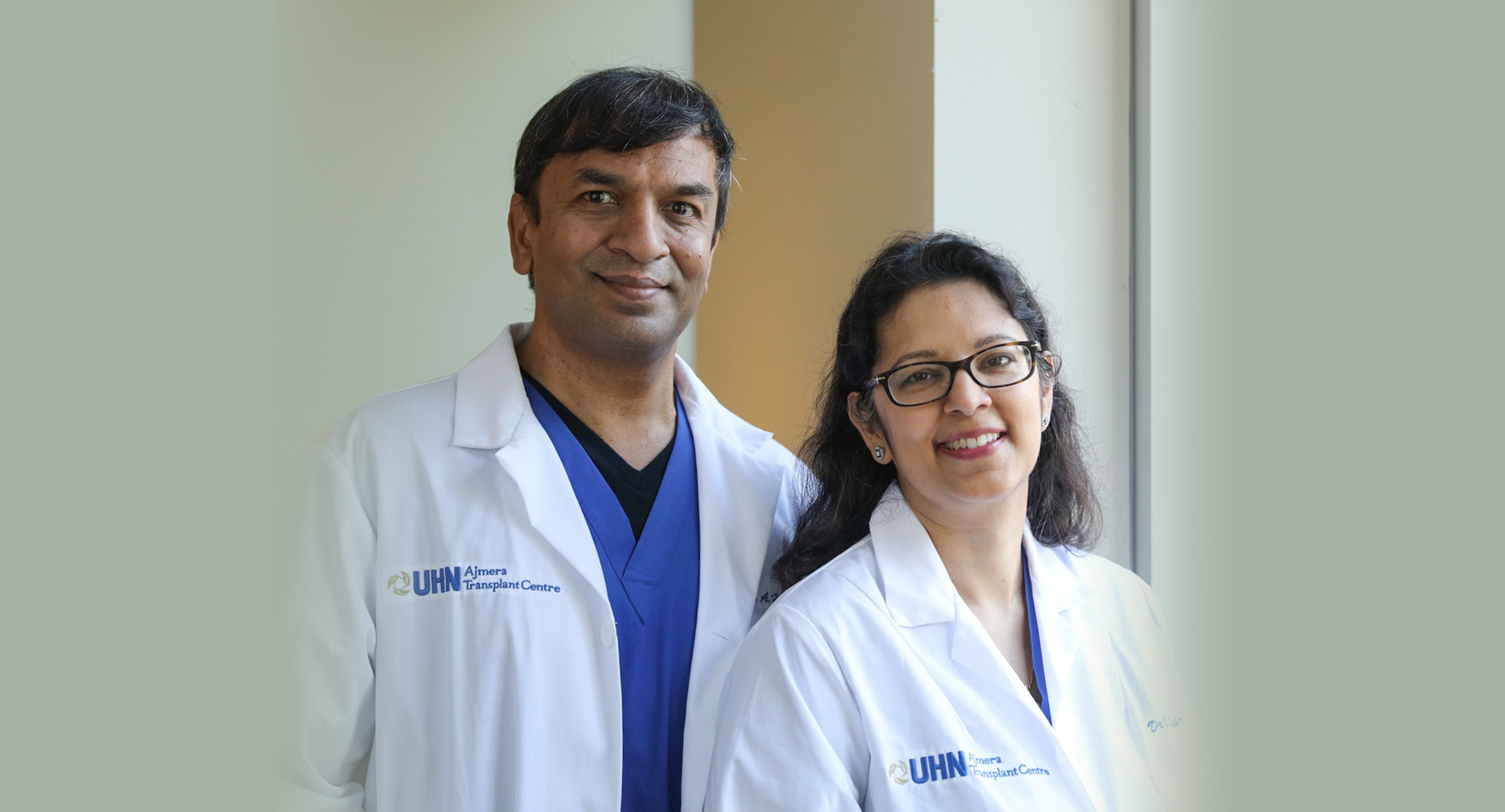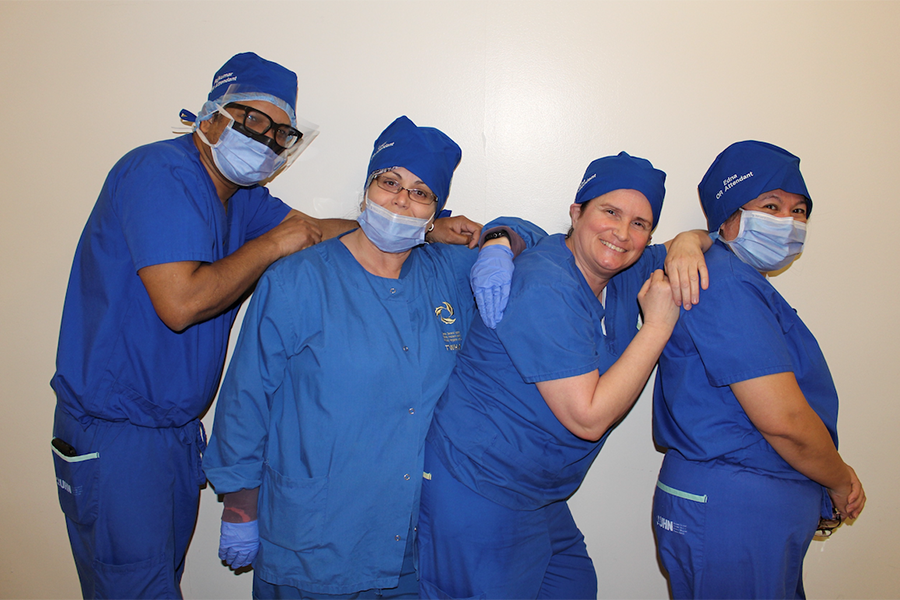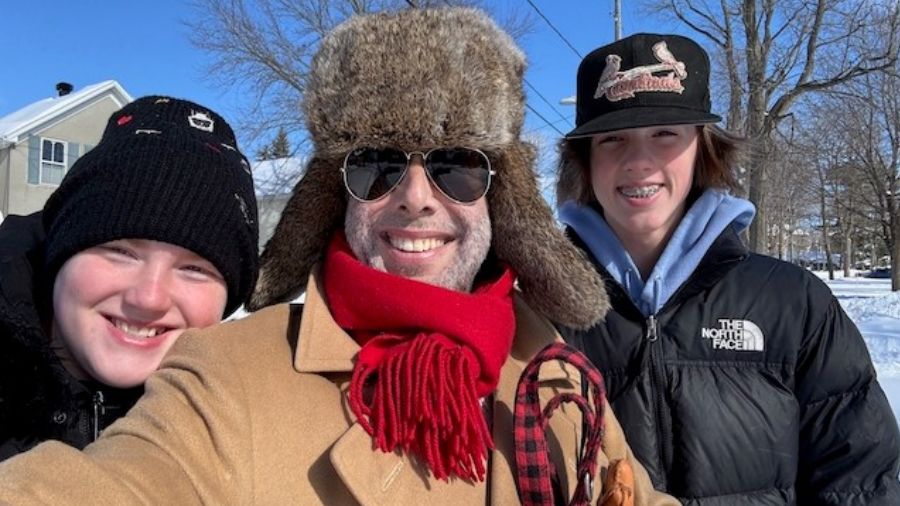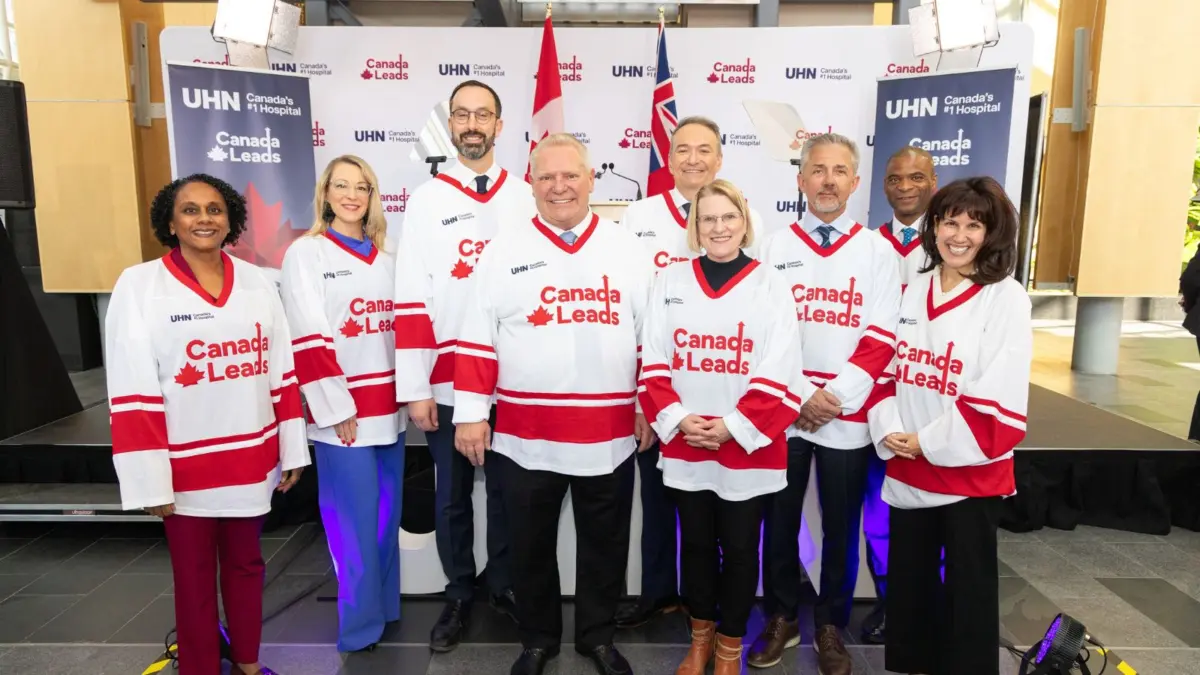
Researchers at the Ajmera Transplant Centre at UHN have conducted a first-in-the-world trial testing whether third-dose COVID-19 booster vaccines can increase transplant patients’ immune response to the virus. The results of this study, published in the New England Journal of Medicine shows a third booster shot substantially improved protection for these patients. This is particularly important because transplant recipients are at higher risk of COVID-19 due to the immunosuppressive medication they must take to prevent their bodies from rejecting the transplanted organ.
“We knew from previous studies that two doses were not enough to produce a good immune response against COVID-19 in transplant patients,” says Dr. Deepali Kumar, Director of Transplant Infectious Diseases, Ajmera Transplant Centre and joint-senior author of the study. “Based on our study, a third dose of COVID vaccine is definitely the best way to increase protection.”
The study, which was supported in part by UHN Foundation donors, enrolled 120 transplant patients. None of the trial participants had been infected with COVID-19 previously and all of them had already received two doses of the Moderna vaccine. Half of the participants received a third shot of the vaccine two months after their second dose, while the other half received a placebo, allowing researchers to compare the impacts of a third dose against a control group.
Study researchers hoped that this third booster shot would cause recipients’ immune systems to generate higher antibody levels against the spike protein of the virus. In the placebo group, the response rate was only 18 per cent whereas in the Moderna three-dose group, the response rate was 55 per cent.
“This is an important win for our patients because the results are quite conclusive,” says Dr. Atul Humar, Medical Director of the Ajmera Transplant Centre and the joint-senior author of the clinical trial. “The third dose was safe and well tolerated and should lead to a change in practice of giving third doses to this vulnerable population.”
Improving the body’s ability to fight back against COVID-19
In addition to the study’s goal of increasing overall antibody levels, the researchers also looked at the effectiveness of neutralizing antibodies, which neutralize the virus. 60 per cent of the patients who received a third dose of the Moderna vaccine developed neutralizing antibodies compared to 25 per cent in the placebo group.
The study also found a big difference in T-cell response between the two groups. T-cells are another arm of the immune system that functions to prevent severe disease. There was a substantial improvement in the ability of patients in the three-dose Moderna group to develop a robust T-cell response against the virus.
This trial was a randomized double-blind placebo-controlled study, which is considered the gold standard in medicine for showing whether something truly works or not. This study showed a definitively positive response in both major arms of the immune system: the antibody arm and the T-cell arm.
Additionally, the third booster vaccine was very well tolerated with only mild side effects and did not cause acute organ rejections. This is an important finding, because there were concerns that repeated vaccinations could increase the incidence of organ rejection in transplant recipients, a dangerous potential outcome.
Fast-tracking science amid a pandemic
Normally a study of this kind would take at least one year, but the team at the Ajmera Transplant Centre executed a rigorous and successful protocol in just a few months.
“We were able to do this because our team worked non-stop for months,” says Dr. Humar. “And we are in a global emergency, lucky enough to have generous philanthropic donors and an existing vaccine trials infrastructure already set up.”
The results have been shared with regulatory bodies and decision-makers including the United States Food and Drug Administration (FDA), The Canadian National Advisory Committee on Immunization (NACI), the American Society of Transplantation, and others. The research team hopes for an expedited approval to benefit as many transplant patients as possible.
Next steps to protect transplant recipients from COVID-19
Research into the effectiveness of COVID-19 vaccines in transplant recipients has recently received a boost in funding for a national study. The Government of Canada, through its COVID-19 Immunity Task Force (CITF) and Vaccine Surveillance Reference Group (VSRG), is investing over $2.8 million so that Dr. Kumar’s team can further study the effectiveness of COVID vaccines across multiple transplant centres in Canada.
“Our goal is to help coordinate the efforts of provincial and national organizations that are involved in public health and vaccination research and facilitate information sharing among public health agencies and patient partners,” says Dr. Kumar.


